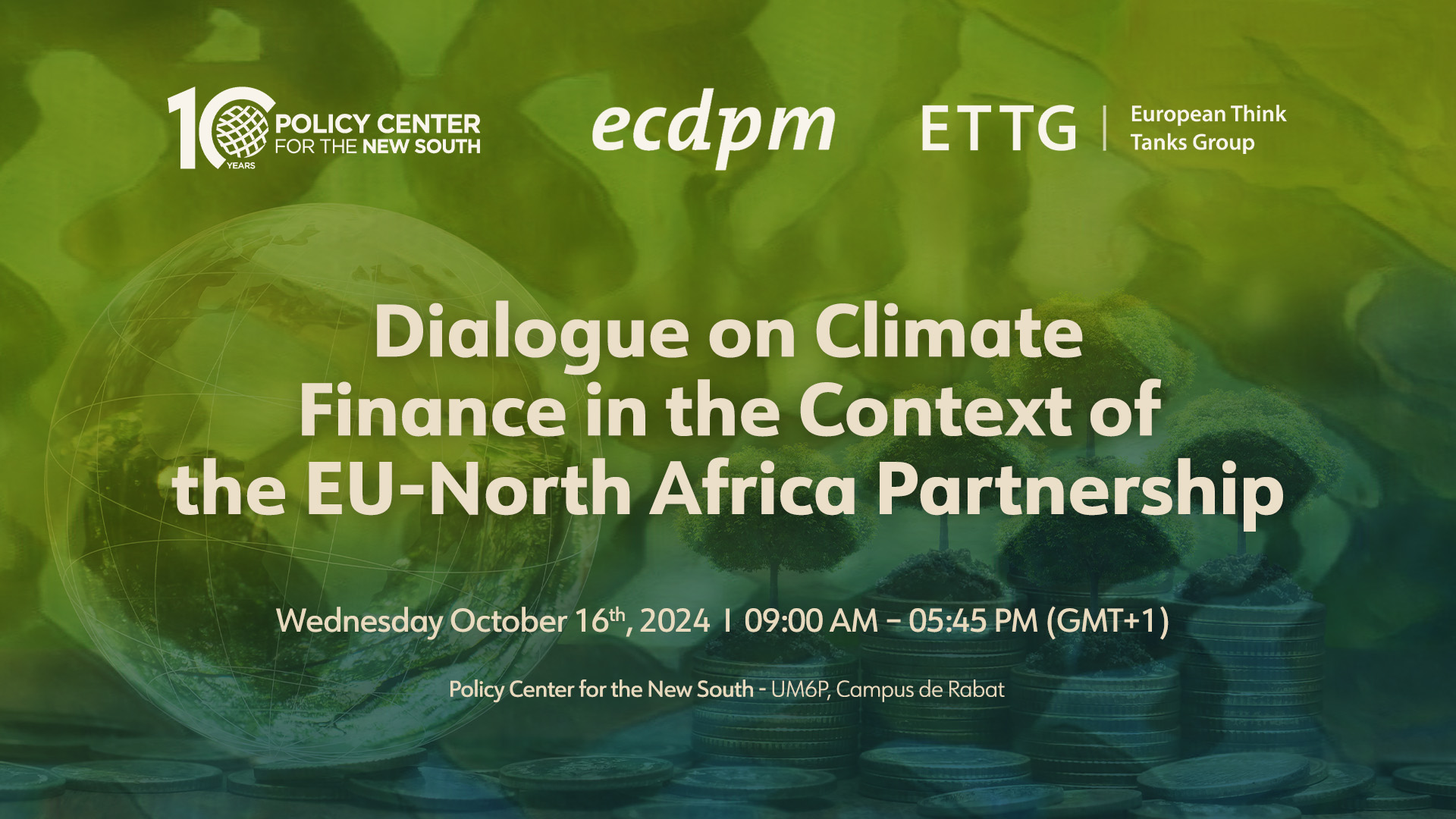Events
Dialogue on Climate Finance in the Context of the EU - North Africa Partnership
From
To

By invitation
Financing and investing in green energy and climate adaptation is crucial for North Africa, a region with immense potential for green transition and resilience-building yet facing escalating climate change impacts.
The region's green energy potential can be the basis for a renewed partnership between North African countries and the EU, centered on energy security and shared benefits from investment in green industrialization, renewable energy, and the hydrogen economy. However, governments are critical of European unilateral trade measures like the Carbon Border Adjustment Mechanism and fragmented international finance for green energy infrastructure.
North Africa is at the forefront of climate resilience and adaptation. Countries in the region have initiated green policies focused on adaptation. For example, Morocco’s Generation Green Plan (2020-2030) emphasizes innovation, green technology, and resilient, eco-efficient agriculture. In Egypt, modernized irrigation systems and water conservation techniques have been introduced to preserve arable land. However, North African countries face a significant and growing climate adaptation finance gap. Although the EU has committed to supporting adaptation and climate resilience as outlined in the 2021 New Agenda for the Mediterranean, the EU’s adaptation support to North African countries remains low.
At the same time, North African financial authorities are developing comprehensive roadmaps prioritizing the climate agenda, extending beyond financial instruments for adaptation and mitigation. This involves examining the financial risks embedded in climate finance for central banks, defining their roles in providing necessary liquidity, and maintaining macroeconomic stability during transitions.
This situation calls for a reevaluation of the partnership between the EU and North African countries, with a specific focus on the role of climate finance, to achieve the goals of (1) a shared climate adaptation and resilience agenda and (2) a mutually beneficial green energy and industrial development agenda.
Against this background, a multi-stakeholder dialogue, co-organized by the Policy Center for New South (PCNS) and the European Centre for Development Policy Management (ECDPM), will take place on 15 and 16 October 2024 in Rabat, Morocco (and online).
Agenda
|
08h30-09h00 |
Welcome coffee and registration |
|
09h00-09h15 |
Welcome and introduction |
|
09h15-09h30 |
Opening remarks |
|
09h30-09h45 |
Keynote presentations |
|
09h45-11h00 |
High-level panel 1 - Energy finance in the context of the EU-North Africa partnership
|
|
11h00-11h30 |
Cofee break |
|
11h30-13h00 |
High-level panel 2 - Adaptation finance in the context of the EU-North Africa partnership
|
|
13h00-14h15 |
Lunch |
|
14h15-15h45 |
Parallel working session 1 - Drawing lessons from innovative finance mechanisms for green energy and adaptation in the North African region
Parallel working session 2 - The EU-Southern Med partnership and how to improve cooperation on climate finance?
Parallel working session 3 - Changes in the global financial architecture
|
|
15h45-16h15 |
Coffee break |
|
16h15-17h00 |
Presentation of findings of the three workshops |
|
17h00-17h15 |
Key recommendations and next steps |
|
17h15-17h30 |
Closing remarks |

